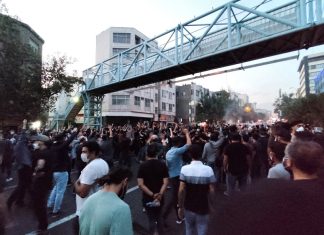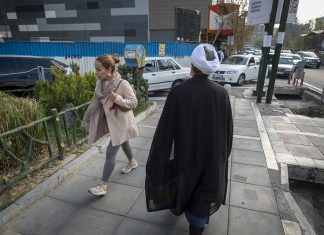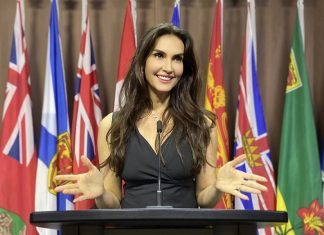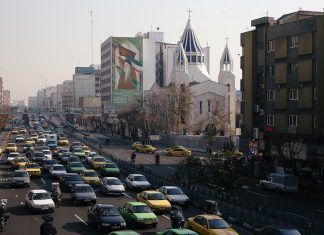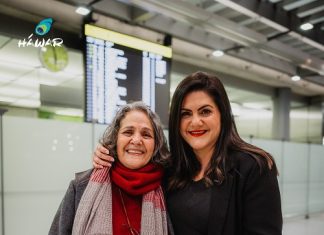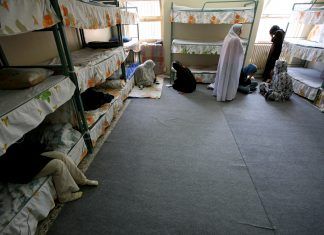A letter sent on May 19 and signed by 60 British lawmakers has demanded that UK Foreign Secretary Dominic Raab grant the jailed dual national Anoosheh Ashoori diplomatic protection.
Mr. Ashoori was arrested and detained in Iran in August 2017, while visiting his mother. He was sentenced to 12 years in Tehran’s Evin prison on charges of “cooperating with a hostile state against the Islamic Republic” and “obtaining illicit funds.” Mr. Ashoori and his family have always denied the charges.
Diplomatic protection is an international mechanism which elevates the status of a case, and would allow the British government to treat Mr. Ashoori’s detention as a legal dispute between Britain and Iran.
The letter, which called the espionage charges against the 67-year-old retired businessman “baseless,” also criticized the British Foreign Secretary for failing to secure Mr. Ashoori’s release, despite having several discussions about the case with Iran’s Foreign Minister, Mohammad Javad Zarif.
“We are especially concerned at the lack of a clear strategy for securing the release of Anoosheh and other British-Iranian dual national hostages currently being held in Iran,” the letter says.
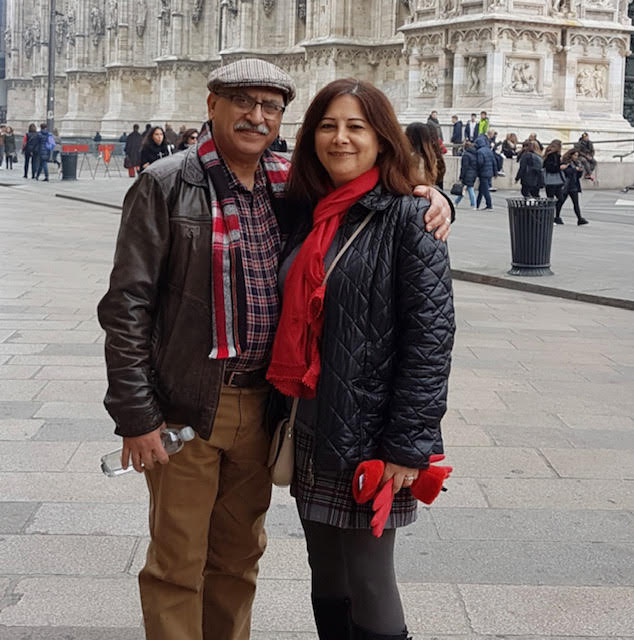
The request for diplomatic protection has been made by Janet Daby, who represents Ashoori’s constituency in the U.K. parliament. It follows an application to the Foreign Office for the diplomatic protection, which was submitted on April 30 by Ashoori’s legal team.
Speaking to Kayhan Life, Daby said the British government was not doing all that it could to ensure his safety and secure his release.
“One of the most difficult things Anoosheh has had to endure is feeling the lack of practical support from the UK government,” Ms. Daby said. “Just as Nazanin Zaghari-Ratcliffe has been granted diplomatic protection, so must Anoosheh. He is similarly a British dual national being held due to his nationality, and we owe it to him and any other Britons falsely imprisoned to use our diplomatic powers for his security. The UK government must do what is within its gift without delay.”
Nazanin Zaghari-Ratcliffe, a British-Iranian detained in Iran on spying charges, was sentenced to five years’ imprisonment in 2016, which she served in full. Ms. Zaghari-Ratcliffe remains in Tehran following a second trial in April, in which she was found guilty of propaganda against the Islamic Republic, and sentenced to a further year in prison. She was granted diplomatic protection in March 2019 by Britain’s former Foreign Minister Jeremy Hunt.
Mr. Ashoori’s wife, Sherry Izadi, told Kayhan Life that diplomatic protection could help her husband’s case.
“One of the questions people ask me is, what did diplomatic protection do for Nazanin Zaghari-Ratcliffe? One difference was that she was out of prison for the final year of her first sentence when the first Covid wave broke in Iran, and thousands of prisoners were temporarily released. Most eventually went back to prison, but she stayed out under house arrest. I think part of that may have been due to the leverage provided by the protection. So we’re looking for the same protection now that there’s a precedent for it,” Ms. Izadi said.
Izadi also said she thought the UK Foreign Office had tried to frustrate her initial enquiry about diplomatic protection for her husband.
“When we first suggested applying for diplomatic protection at a meeting with the Foreign Office on March 14, 2019, it was explained to us that one of the conditions was that we would have to prove Anoosheh’s dominant nationality is British,” she said.
“In our first meeting with Dominic Raab in Sep. 18, 2019, we told him that the Foreign Office’s comment about the need to prove dominant nationality made us feel like second-class citizens. He assured us this wasn’t the case and it was just protocol.”
Dominant nationality can be exceptionally difficult to prove, as no agreed definition exists in diplomatic protection law. Legal experts have suggested that the following factors could be used to determine dominant nationality: the amount of time spent in the country of nationality; the date of the individual’s naturalization; the language of education; place of family life; family ties in each country; participation in social and public life; use of language; taxation; bank accounts; visits to the other state of nationality; and possession and use of a passport from the other state.
Mr. Ashoori, who his wife believes contracted Covid-19 in prison and remains in need of a knee operation, has been subjected to torture, questioned without a lawyer present and coerced into signing confessions while in custody, according to Amnesty International.
Human rights campaigners believe that the ongoing detentions of Mr. Ashoori and Ms. Zaghari-Ratcliffe are tied to the 2015 Iran nuclear deal, and that dual nationals are being used by the Iranian government as bargaining chips to secure political and financial gains.
UK Prime Minister Boris Johnson said in January that Britain was working “virtually around the clock” to secure the release of all British-Iranians held in Iran.
https://kayhanlife.com/society/human-rights/iran-hostage-release-must-be-part-of-nuclear-deal-richard-ratcliffe-says/

